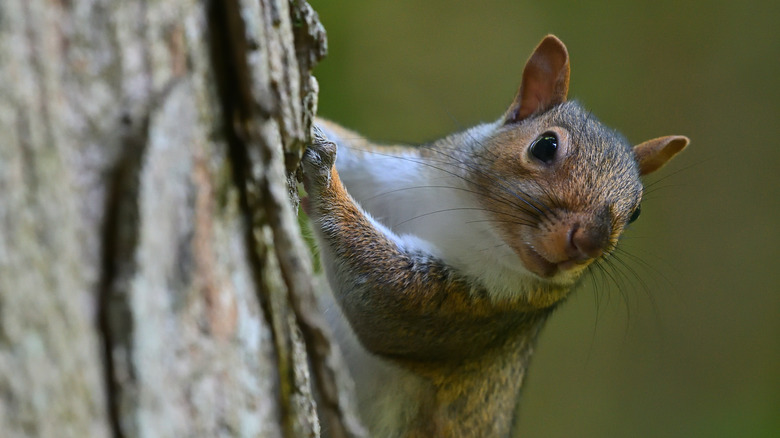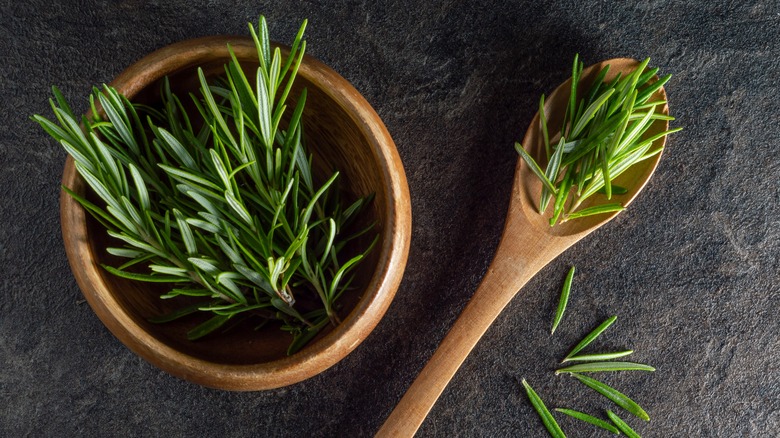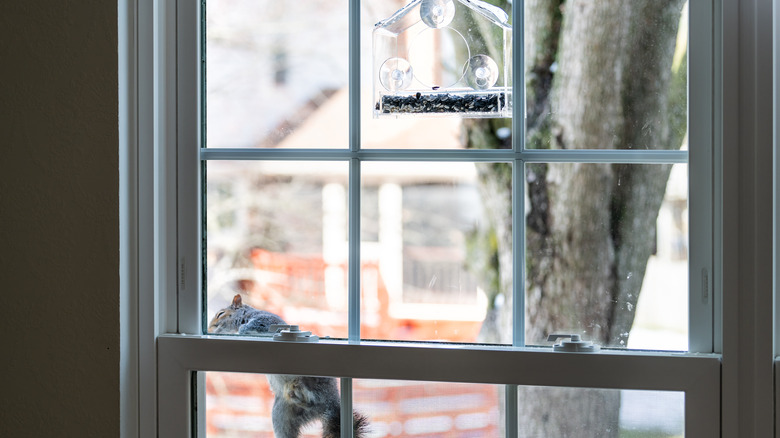Is Rosemary The Secret To A Squirrel-Free Garden?
If you've noticed squirrels turning your garden into their playground, you're probably looking for ways to gently persuade them to move on. Have you thought about using rosemary? Some experts in pest control believe it has squirrel-deterring properties. The key seems to be its strong and distinctive aroma. Although there's more anecdotal evidence than scientific research to back this up, it may come in handy as part of a broader squirrel management plan since there's no one-size-fits-all solution when it comes to discouraging squirrels.
Remember, there are different types of squirrels, each with their quirks. For example, the common gray squirrel is quite the adventurer and is known for being particularly bold and resourceful. These are likely the ones you see scampering across your lawn or daringly approaching your bird feeders. Then there's the red squirrel, smaller but no less tenacious, often seen darting around trees and occasionally making forays into gardens. Each type of squirrel brings its challenges. Generally speaking, however, they can be quite a headache in the garden. Despite their cuteness, they can cause real damage. They dig up bulbs, snack on your flowers, and can even chew through garden hoses and other outdoor items. This is why understanding their behavior and finding effective, humane ways to deter them is important. To effectively deter squirrels, you need to use this knowledge to your advantage.
Using rosemary effectively to deter squirrels
Squirrels are often drawn to gardens for various reasons, including the availability of food, shelter, and nesting sites. You've probably noticed how active they get, particularly during their mating and breeding seasons in late winter. They chase each other, looking for a suitable mate. As spring approaches, that's when they're busily preparing for their young, making your garden an even more appealing spot for them. They usually set up their nests, known as dreys, in trees, but don't be surprised if you find them tucked away in more hidden spots like attics or under your deck. It's not just about them stopping by for a snack. They might be planning to stick around longer.
This is where rosemary comes into play. Try scattering fresh rosemary sprigs around your yard, focusing on areas where squirrels are most active or where they might try to sneak in. If you're up for something a bit more hands-on, how about making a rosemary spray? Just grind some rosemary leaves into a fine powder, mix it with water, and you've got yourself a homemade squirrel deterrent. Spray this around the edges of your garden and near potential nest sites. As mentioned earlier, the strong scent of rosemary is something squirrels don't seem to appreciate as much as we do. If the smell becomes too overpowering, your garden will no longer be an option, and they'll find other, more suitable areas.
Combining rosemary with other squirrel deterrents
Rosemary on its own may not be enough to keep squirrels at bay. For even better results, why not pair it with some other clever strategies? Start with securing all the easy food sources. Squirrels are opportunists, always on the lookout for an easy meal. You need to make that search futile for them. Toward that end, you can use this WD-40 trick to make bird feeders squirrel-proof. If you have pet food bowls outside, consider moving them indoors or to a less accessible spot. Physical barriers can be a game-changer, too. Think about adding fencing or netting around your vegetable patch or fruit trees. These areas are like all-you-can-eat buffets for squirrels, so protecting them can significantly reduce the appeal of your garden. Keeping your garden tidy can also make a big difference. Squirrels love a messy, cluttered space where they can hide and nest. Regularly mowing your lawn, trimming bushes, and clearing away debris can make your garden less attractive to them.
You might have already considered using motion-activated sprinklers. If so, it's a great idea. These are not just for watering your plants; they can startle squirrels with a burst of water, making your garden a less inviting place for them. It's a harmless yet effective way to send them scampering off. Lastly, fake owls or hawks can sometimes trick squirrels into thinking there's danger nearby. Playing recorded predator sounds occasionally might also help in creating an unwelcoming environment for squirrels.


